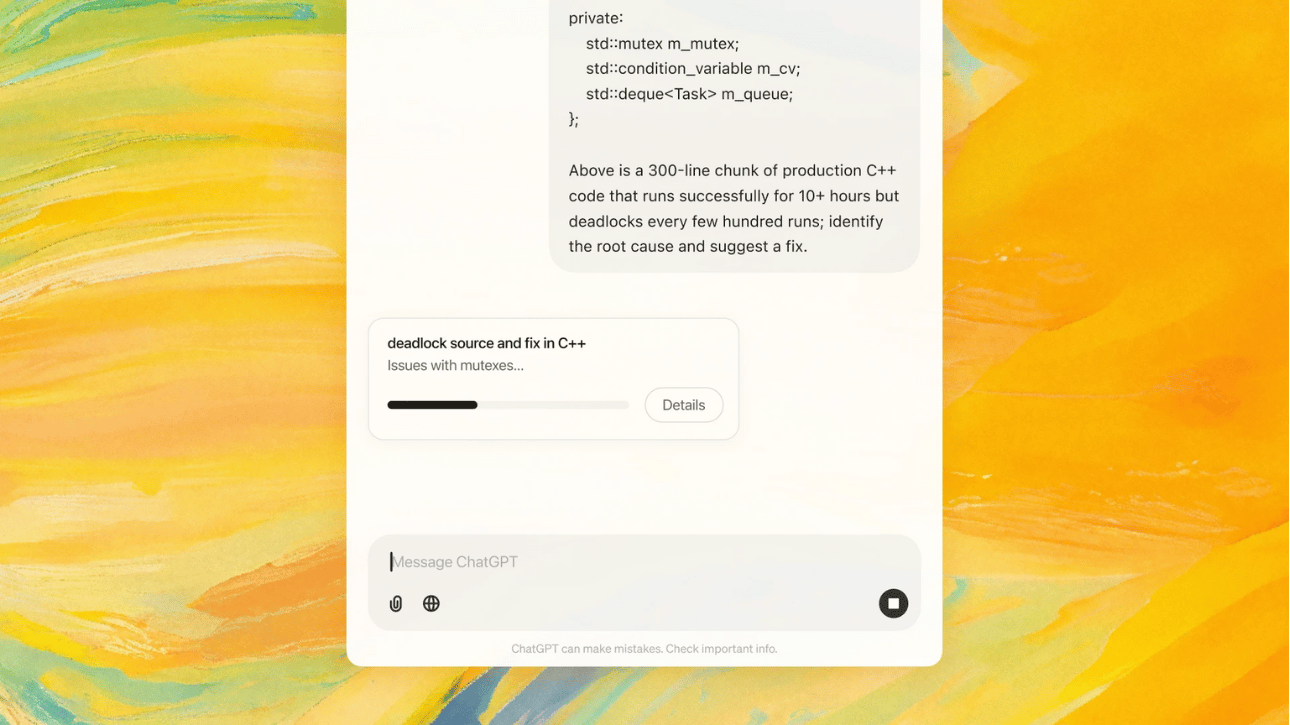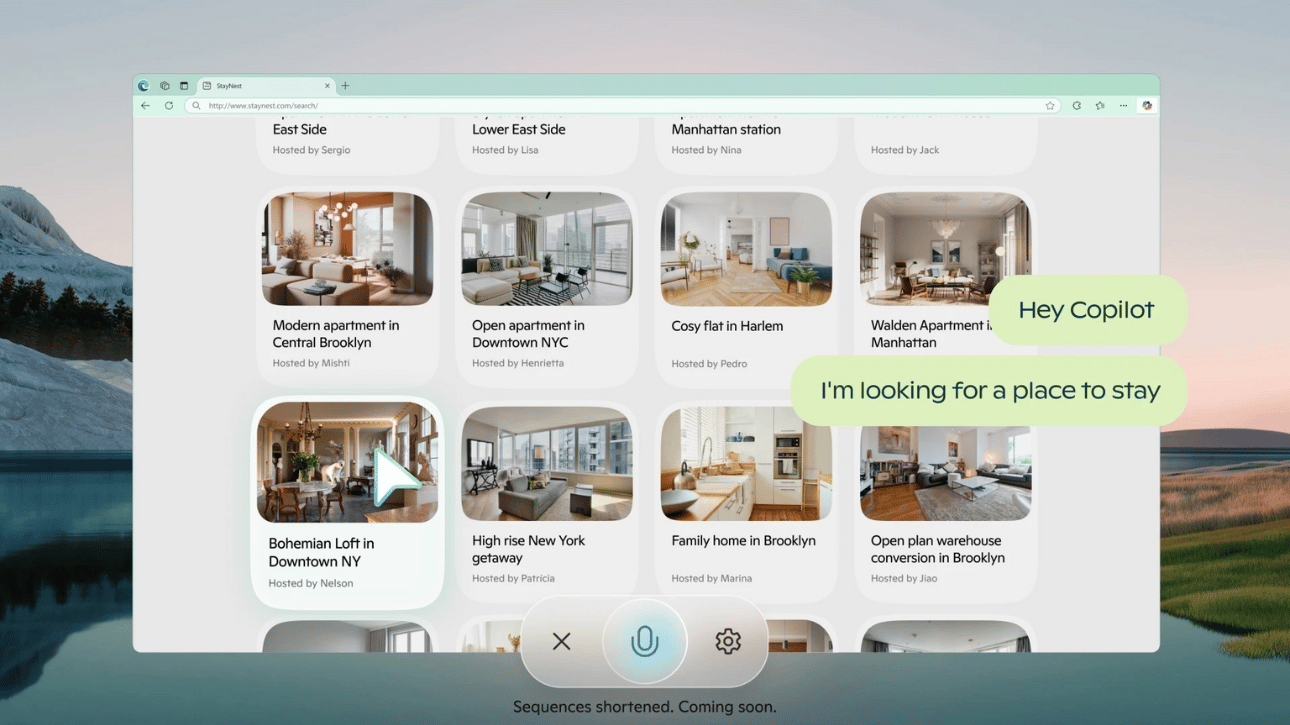- The Logical Box
- Posts
- OpenAI Launches ChatGPT Pro: Advanced AI at $200/Month
OpenAI Launches ChatGPT Pro: Advanced AI at $200/Month
PLUS: Meta unveils a more efficient Llama AI model rivaling industry giants

Hello, AI Explorer! Welcome to The Logical Box
OpenAI has launched ChatGPT Pro, a premium subscription service providing unlimited access to their most advanced AI models and tools, including the new o1 pro mode for enhanced problem-solving capabilities.
Let’s get into it…
Let’s Take a Peek Inside the Box for Today’s Issue:
OpenAI Launches ChatGPT Pro: Advanced AI at $200/Month
Meta unveils a more efficient Llama AI model rivaling industry giants
Google DeepMind unveils groundbreaking AI advancements coming
Copilot Vision is enhancing web browsing with AI-powered assistance
Caltech’s groundbreaking algorithm for robotic decision-making
AI Tip of the Week: Automate Your Daily Tasks with AI
Read time: 6 minutes

Image Source: OpenAI
Think Inside the Box:
OpenAI has launched ChatGPT Pro, a premium subscription service providing unlimited access to their most advanced AI models and tools, including the new o1 pro mode for enhanced problem-solving capabilities.
Unpacking the Logic:
ChatGPT Pro offers access to OpenAI's smartest models: o1, o1-mini, GPT-4o, and Advanced Voice.
The plan includes o1 pro mode, which uses more compute power for improved responses to complex problems.
O1 pro mode outperforms standard models in areas like data science, programming, and case law analysis.
ChatGPT Pro aims to accelerate productivity for researchers, engineers, and professionals using AI daily.
OpenAI is awarding 10 ChatGPT Pro grants to medical researchers at leading U.S. institutions.
The Logical Impact:
From a practical standpoint, ChatGPT Pro represents a significant leap in AI capabilities for professionals and researchers. This raises an important question for businesses and research institutions: How can you leverage these advanced AI tools to enhance problem-solving and productivity in your field?

Image source: Larysa Amosova via Getty
Think Inside the Box:
Meta has introduced Llama 3.3 70B, a new generative AI model that delivers performance comparable to its larger counterpart while significantly reducing costs and outperforming competitors on various benchmarks.
Unpacking the Logic:
Llama 3.3 70B matches the performance of Meta's largest model, Llama 3.1 405B, at a lower cost.
The new model outperforms Google's Gemini 1.5 Pro, OpenAI's GPT-4o, and Amazon's Nova Pro on industry benchmarks, including MMLU.
Improvements are expected in areas such as math, general knowledge, instruction following, and app use.
Meta's Llama models have been downloaded over 650 million times, showcasing their popularity among developers.
Meta AI, powered by Llama models, boasts nearly 600 million monthly active users.
The Logical Impact:
From a practical standpoint, Meta's Llama 3.3 70B represents a significant advancement in AI efficiency and performance. This prompts an important question for businesses and AI developers: How can you leverage more efficient AI models to enhance your products or services while managing costs effectively?

Image source: Google Deepmind
Think Inside the Box:
Google DeepMind discusses significant AI research breakthroughs, showcasing advancements in 3D content creation, scene simulation, and language model improvements.
Unpacking the Logic:
CAT3D, a new system, creates high-quality 3D content from minimal input in as little as one minute, surpassing previous methods in speed and quality.
SDF-Sim, a novel technique, enables efficient simulation of complex scenes with numerous rigid objects by improving collision detection.
Neural Assets introduces object-specific representations for better control of 3D positioning and orientation in AI image generators.
Researchers explored methods to adapt many-shot in-context learning (ICL) for large language models, reducing reliance on manually curated data.
Time-Reversed Language Models (TRLM) improve response accuracy, citation generation, and safety filters in traditional LLMs.
The Logical Impact:
From a practical standpoint, Google DeepMind's advancements signal significant progress in AI capabilities across multiple domains. This raises a crucial question for businesses and content creators: How can these innovations in 3D content generation, scene simulation, and language model improvements be leveraged to enhance productivity and create more immersive experiences in your industry?

Image source: Microsoft
Think Inside the Box:
Microsoft has introduced Copilot Vision, a feature in Microsoft Edge that, with user permission, allows Copilot to understand the context of the current webpage, providing real-time assistance and insights.
Unpacking the Logic:
Copilot Vision can read and interpret the content of the webpage you're viewing, offering relevant support.
Users can enable Copilot Vision as needed, ensuring AI assistance is available only when desired.
Microsoft emphasizes that Copilot Vision does not store or use webpage data for AI model training, addressing privacy concerns.
Initially available to a select group of Copilot Pro subscribers in the U.S. through Copilot Labs, with plans for broader access over time.
Aims to make web navigation more interactive and less isolating by providing contextual AI support.
The Logical Impact:
Logically speaking, Copilot Vision represents a significant advancement in AI-assisted browsing, offering users contextual support directly within their web experience. How might integrating such AI capabilities into your daily browsing enhance productivity and decision-making processes?

Image source: Leonardo AI / Andrew Keener
Think Inside the Box:
Caltech's team has developed the Spectral Expansion Tree Search (SETS) algorithm, enabling autonomous robots to make optimal decisions in real-time while navigating complex environments.
Unpacking the Logic:
SETS simulates thousands of possible trajectories in just a tenth of a second, allowing robots to make multiple decisions per second.
The algorithm balances exploration of new paths with exploitation of previously successful routes for efficient decision-making.
SETS can be applied to various robotic platforms without individual programming of features and capabilities.
Researchers demonstrated SETS' versatility in three diverse experiments: a quadrotor drone avoiding obstacles, an augmented human-driven ground vehicle, and tethered spacecraft capturing an object.
The algorithm overcomes the exponential growth problem in traditional Monte Carlo Tree Search methods for continuous dynamical systems.
The Logical Impact:
From a practical standpoint, SETS represents a significant leap in robotic decision-making capabilities across diverse applications. This raises a crucial question for industries relying on autonomous systems: How can the versatility and efficiency of SETS be leveraged to enhance the performance and adaptability of your robotic systems in real-world, dynamic environments?
AI TIP OF THE WEEK
AI TIP OF THE WEEK
Automate Your Daily Tasks with AI
Feeling overwhelmed by repetitive tasks?
AI tools can save you hours by automating routine work like scheduling, data entry, and file organization.
How AI Can Help You:
It schedules your day by prioritizing tasks and meetings.
It automates repetitive processes like data entry or generating reports.
It keeps your files organized by categorizing and tagging them automatically.
Easy Steps to Get Started:
Choose a Tool: Try Zapier (task automation), Notion AI (organization), or Microsoft Power Automate (workflow automation).
Set Up Automations: Identify repetitive tasks, such as sending reminders or transferring data between apps, and let AI handle them.
Streamline Scheduling: Use AI to automatically book appointments or schedule tasks based on your availability.
Organize Files: Enable AI tools to auto-tag and sort your documents for easy access.
Analyze Workflows: Use AI to spot inefficiencies and recommend improvements.
Why It’s Useful:
For busy professionals, AI automation can:
Save hours on repetitive tasks.
Reduce human error in data handling.
Free up time for high-value activities like strategy and decision-making.
Tools to Try:
Zapier: Connects your apps to automate workflows.
Notion AI: Organizes tasks and ideas seamlessly.
Microsoft Power Automate: Builds automated workflows for apps and services.
With AI automating your day-to-day tasks, you can focus on what really matters, growing your business and achieving your goals.
Please share The Logical Box link if you know anyone else who would enjoy!